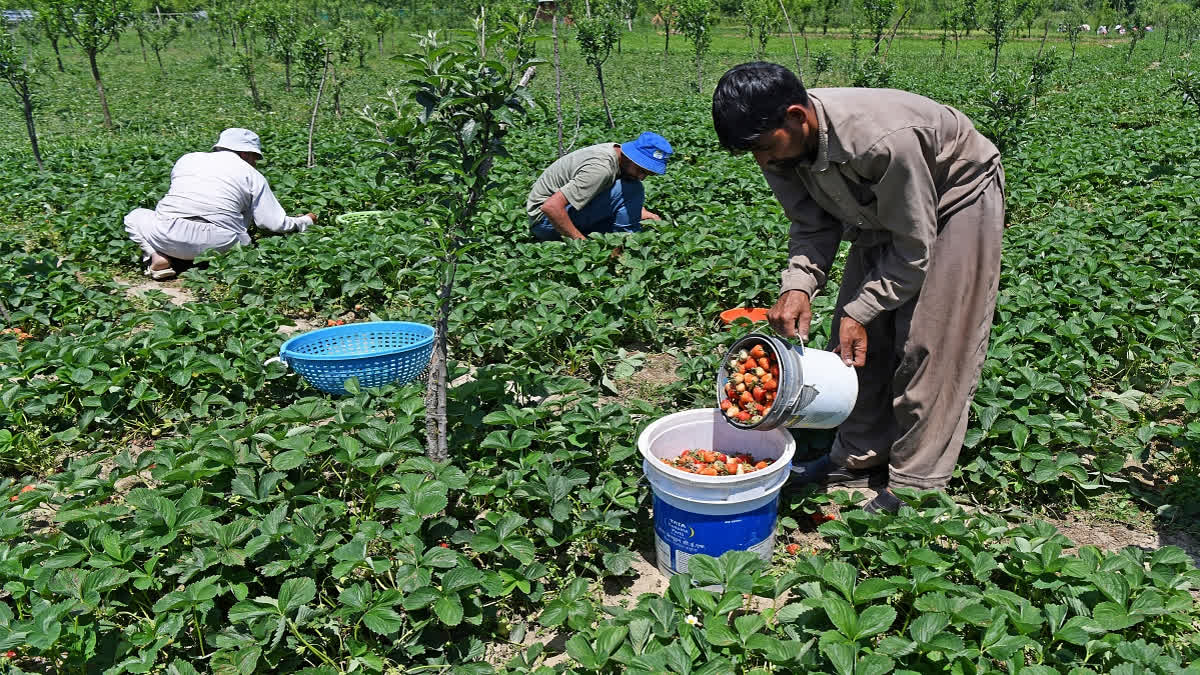The Narendra Modi government is planning to implement a 100-day development programme to boost the economy so as to increase productivity and create jobs. Among various initiatives, agricultural infrastructure development deserves to be one on the high priority. Aa a part of the scheme, a fund by name "Agri-SURE fund" is being created to help in scaling up of operations of about 85 startups in the next five years with a variable ticket size up to Rs 25 crore each.
A separate trust is being set up in Nabventures (under the technical guidance of NABRD) to register the fund with the Securities and Exchange Board of India. The government is aiming to boost investment in post-harvest infrastructure development at farm gates to help farmers handle their produce better and fetch remunerative prices.
To bring in efficiency in the value chain of agriculture and allied sectors, the Modi government, may launch a separate Rs 750-crore fund called Agri-SURE for agri-startups and expedite the implementation of various initiatives such as the agriculture infrastructure fund (AIF) and the integrated scheme for agricultural marketing.
It will cover startups associated with sectors such as agri-tech, food processing, animal husbandry, fisheries, supply chain management, farm mechanisation, and biotechnology.
The 100 day programme should focus on: a) bringing institutional reforms (for example, allowing farmers to democratically elect their representatives to the agricultural market committees), b) investing heavily in modernising farm-related infrastructure such as improving the quality of rural roads linking markets, godowns, processing plants, and farms (kamathaalu), grading labs, etc, c) ushering clusterisation of crops (panta kalaneelu), d) educating and enabling small farmers to come together into farm producer companies (FPOs) and providing more incentives such as interest free working capital, tax concessions for profits earned by the producer companies, e) implementing more farmer friendly crop insurance, exploring innovative support systems - such as tie-up with malls and super bazaars for better price realisation, and f) encouraging farmers to setup processing facilities for higher value addition. With larger political mandate, and the positive growth of GST revenues, the new central government is in a stronger position to persuade the state governments to discharge their role more effectively. With this, the state governments should come forward and put their share of investment to improve the viability of agriculture.
The new government is expected to expedite the implementation of the Rs one-trillion AIF aimed at creating post-harvest infrastructure at farm gates, aggregation points of primary agricultural cooperative societies, farmer producer organisations, agri-entrepreneurs, startups, etc. All loans under this financing facility will have interest subvention of 3 per cent per annum up to a limit of Rs two crore. The subvention will be available for a maximum of seven years.
Under AIF around Rs 35,000 crore has been sanctioned for 48,352 projects so far. Major projects sanctioned under it include warehouses, primary processing units, custom hiring centres, sorting and grading units, cold store projects, and assaying units. The objective of the fund is to develop the infrastructure at the grassroots level so as to boost farm incomes.
A number of spheres in the agricultural sector need urgent assistance. Some of these include: harvesting platforms (nurpidi kallalu) at farm gate level, micro level storage for grains, vegetables, fruits, fish etc.
It may be recalled that in the last week of May 2024, banana farmers suffered severe crop damage due to excessive heatwaves. Similarly, in places like Aakiveedu in West Godavari district, due to the severe heat, the oxygen levels in fish ponds fell drastically, compelling the farmers to harvest their fish urgently but could not preserve them for want of cold storage facilities. Horticulture farmers across the state suffered extensive crop damages due to proper scientific storage facilities. It may be recalled that for too long the focus has been on boosting production.
The entire amount of AIF under the plan was to be disbursed between FY21 and FY26, while the support under the fund would be provided till FY33. The government has also decided to lay emphasis on helping states in creating marketing infrastructure at farm gates through the existing integrated scheme for agricultural marketing.
Currently, under the electronic-national agriculture marketing (e-NAM), 1,361 mandis are integrated and around 18 million farmers have been participating in the online trade of agricultural commodities. In addition, the government should focus on creating production clusters for specific crops to ensure they’re better marketing. A cluster-based approach would help link farmers to the processing units and cut transportation costs.
While the scheme is being designed to be a national initiative, it would be fair to urge the new government to give special consideration to Andhra Pradesh, Telangana, Karnataka and Tamil Nadu all of which are primarily agricultural states which have been crying for special attention because the budgets in these states have failed to provide adequate funds for agriculture infrastructure.
These state governments have devoted much of their budget resources for freebies and other welfare programmes leaving little or no funds for agriculture infrastructure development.



